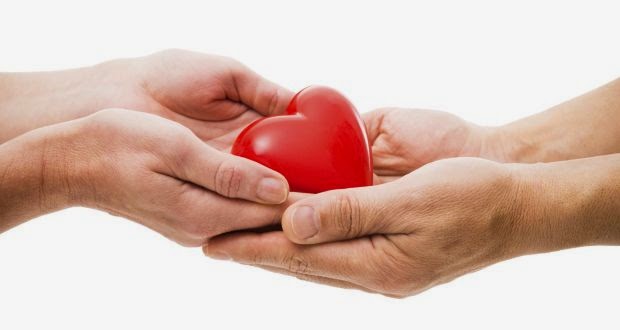Heart Transplantation is a surgical transplant process done in patients by
replacing their damaged heart with a healthy heart. This procedure is
practising from the late 1960s.
Father
of Heart Transplantation procedure is Norman Shumway, but the first
successful adult heart transplantation is done by Chritaain Barnard,
a South African Cardiac Surgoen on December 3, 1967 at Groote Schuur
Hospital, Cape Town, South Africa. Now around 3,500 heart transplants
are done annually worldwide.
Heart
Transplantation can be done is two ways, Orthotopic & Heterotopic
procedure. Even it has several methods to do, there are several
complications for doing it successfully. All other surgeries need
only the patient and a surgeon, but transplantation procedure needs a
donor to donate a working and healthy heart. Finding a donor with
compatible heart is a very difficult task. The donor heart should be
close enough in matching with patient's tissues, otherwise the
patient's body may reject the new heart.
Who Can Have Heart Transplantation Procedure?
Everyone
with a heart disease is not a good candidate for Heart
Transplantation. There are several factors to have a heart
transplant.
- If the patient have severe coronary heart disease.
- End Stage of Heart Failure – when medications, other treatments is no longer affect the patient.
- Severe angina (chest discomfort due to poor blood flow)
- Severe defects in the heart, which cannot be treated with surgeries and medications.
- Life threatening & abnormal heart beating which doesn't respond to medications.
- Other causes like heart tumors, heart damages, cardiomyopathy, heart valve abnormalities.
Also
there are conditions in which heart transplantation will not do,
- The patient is malnourished, means if the patient doesn't have proper health to undergo a surgery.
- The patient is over aged, 55-60.
- The patient have diseases like cancer, HIV, had a severe stroke or dementia.
- Have infections like active hepatitis.
- Having insulin dependent diabetes
- Having kidney, lungs, liver or nerve diseases.
- Having pulmonary hypertension and other diseases affecting neck and leg blood vessels.
- If the patient is a smoker or alcoholic or having habits which will damage the new heart.
The
doctors will check every possibility and impossibilities before
conducting a Transplantation.
Steps Involved In Transplantation
Step
1: The transplant team will be analysing the patient for confirming
that the patient is eligible for the procedure. All the test
regarding the procedure will be done. The patient will be monitored
for several weeks or months before the transplant.
Step
2: After all the medical checkups, if the patient is eligible, he/she
will be added into the national waiting list for a heart. According
to several factors, the patient's place in the list will be decided.
Factors like the severity of the disease, body type, body size,
immunologic match, likelihood that a transplant will be successful.
Step
3: The patients who are waiting for a heart is normally will be in a
critical state, so they will be given external mechanical circulatory
support devices like ECMO, LVAD etc. It is very difficult for the
patient to maintain a healthy routine for cooperating with the
transplantation team in waiting period. This will ensure optimal
health before the procedure.
Step
4: The patient awaiting the donor heart will be called for surgery at
any time if the donor is ready. The donor heart can be from diseased
or brain dead person, also called as beating heart cadaver. The donor
heart will be examined by a group of surgeons and if it is suitable
and matching with the recipient then the surgery will be done
immediately.
Step
5: The patient is given general anaesthesia, and a cut is made
through the breastbone or they will open the chest (median
strenotomy). The blood flow will be changed to heart-lung bypass
machine while the surgeon works on the heart. This machine will
supply oxygenated blood to all parts of the patient's body.
Step
6: During the transplantation procedure, the surgeons have 2 options
for the surgery, they are Orthotopic & Heretotopic. According
to condition of donor heart and recipient heart, they will choose any
one of the methods.
Orthotopic
In
orthotopic procedure, the patient's heart is removed and the new
donor heart is fixed. This is done if the patient's heart is so weak
and the donor heart is healthy to handle the patient's functions.
Heterotopic
In
Heretotopic procedure, without removing the patient's heart, the
donor heart will be attached and this is effectively called as
“Double Heart”. This is done for giving the patient's heart a
chance to recover or if the donor heart is not that healthy to
function. So in this condition, the patient's heart will get support
from the donor heart to function normally. In future, if the donor
heart fails it can be removed.
Step
7: After attaching or replacing the new heart, the external
heart-lung bypass machine will be disconnected. Now the blood will
flow through the transplanted heart. Then the chest will be stitched
back.
Step
8: Now tubes will be attached to drain air, fluid, and blood from
chest for some days.
Step
9: For 24 to 48 hours after surgery, the patient will be in the
Intensive Care Unit or ICU for the closer monitoring of the patient.
Care After Transplantation
The
patient is recommended to stay 7-21 days in Hospital after surgery.
Because close monitoring is needed for the patient to ensure that
there is no infections, bleeding and to make sure the heart is
healthy and working well. Regular check ups will be needed for 3
months and normal recovery time is 6 months. Need to take blood test,
x-rays and echo cardiograms regularly for many years.
Regular
check ups are recommended because, the body can reject the new
transplanted heart. The immune system in our body considers the new
heart as an infection and it will fight against it. So the patient
will be given immunosuppressent medications for resisting the immune
system. It will be a life long medication for the patient. These
medications will have side effects. The doctor will often prescribe
for heart muscle biopsy for knowing if the body is rejecting the new
heart. The surgery can also lead to other diseases like lung
problems, kidney failure, blood clots, heart attack, stroke etc.
Heart
Transplantation is a life saver procedure for those who are going to
die. This gives the patient some more time to live in this world.
10-15 years is the average life expectancy after a Heart
Transplantation, if the patient successfully suppress the rejection.
Dr. Kuldeep Chulliparambil, best heart surgeon in Kerala offers effective treatment for all cardiac issues with well advanced technologies. Dr Kuldeep Kumar Chulliparambil is well renowned as one of the top cardiac surgeons in Cochin, Ernakulam, Kerala, India with an experience of more than 20 years in offering cardiac treatment.
Mail us: heartsurgeonindia@gmail.com




